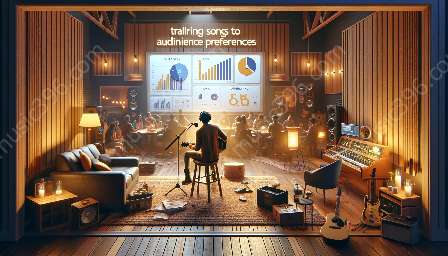Collaborating on songwriting can be incredibly rewarding, but it also comes with its unique set of challenges, particularly when it comes to creative differences. In this guide, we'll explore effective strategies for navigating these differences and fostering successful co-writing partnerships. We'll cover essential co-writing tips and techniques to help you create impactful and harmonious music with your collaborators.
Understanding the Creative Process
Before delving into specific strategies, it's essential to recognize that creative differences are a natural part of the songwriting process. Each co-writer brings their own unique perspective, ideas, and preferences to the table, and these divergent viewpoints can lead to clashes. Accepting and understanding this diversity is the first step towards addressing creative differences in co-writing.
Effective Communication
Communication lies at the core of successful co-writing partnerships. Open and honest dialogue between collaborators can help mitigate creative conflicts before they escalate. Establishing clear channels of communication and setting aside time for regular discussions can ensure that everyone's voice is heard and respected.
Active Listening
Active listening is an invaluable skill in co-writing. It involves not only hearing what your collaborators have to say but also making a genuine effort to understand their perspective. By actively listening to one another, co-writers can find common ground, identify shared goals, and bridge their creative differences.
Setting Clear Goals
Defining clear and measurable objectives for your co-writing projects can help align everyone's efforts and minimize potential conflicts. Whether it's composing a hit single, exploring a specific musical genre, or conveying a particular message through the music, having a shared vision can guide the collaborative process and reduce creative disparities.
Respect and Flexibility
Mutual respect and flexibility are crucial for navigating creative differences in co-writing. Recognizing and honoring each other's strengths, preferences, and areas of expertise fosters a positive environment for collaboration. It's essential to remain open to new ideas and be willing to compromise when necessary, allowing the creative process to flourish and evolve.
Identifying Strengths
Understanding each co-writer's strengths and acknowledging the unique contributions they bring to the table can lead to more cohesive and fruitful collaborations. By leveraging individual strengths, co-writers can complement each other's abilities, resulting in a synergistic creative dynamic and minimizing potential conflicts arising from differences in skill sets.
Feedback and Compromise
Constructive feedback and compromise play pivotal roles in resolving creative disparities. Co-writers should be receptive to feedback from their collaborators and be willing to make compromises to reach a harmonious middle ground. This willingness to adapt and fine-tune ideas collectively can yield superior songwriting outcomes.
Professional Mediation
At times, seeking professional mediation or the assistance of a third party can be beneficial in resolving creative conflicts between co-writers. A trained mediator or industry professional can offer impartial perspectives, facilitate productive discussions, and help co-writers reach mutually satisfactory solutions, ultimately bolstering the collaborative relationship.
Dispute Resolution Mechanisms
Establishing formalized dispute resolution mechanisms from the outset can provide a structured approach to addressing creative differences. This may involve outlining a clear decision-making process, establishing a voting system, or delineating specific roles and responsibilities within the co-writing partnership, helping to prevent impasses and resolving conflicts efficiently.
Celebrating Diversity and Innovation
Instead of viewing creative differences as hurdles, co-writers can embrace them as opportunities for innovation and growth. Encouraging diverse perspectives and celebrating the uniqueness that each collaborator brings to the creative process can lead to groundbreaking musical creations that incorporate a rich tapestry of influences.
Embracing Experimentation
Empowering co-writers to experiment with unconventional ideas, unconventional structures, and innovative sonic elements can yield fresh and captivating music. Embracing experimentation and risk-taking within the co-writing dynamic can transform initial discrepancies into innovative, genre-defying compositions.
Celebrating Successes
Finally, celebrating the achievements and milestones reached through co-writing can reinforce the bond between collaborators and serve as a testament to the strength of navigating creative differences. It's important to acknowledge and appreciate the collaborative efforts that have resulted in impactful and resonant music, fostering a positive and affirming co-writing environment.
By implementing these strategies and embracing the unique dynamics of co-writing, collaborators can nurture harmonious and productive partnerships, ultimately leading to the creation of compelling and enduring music.

























